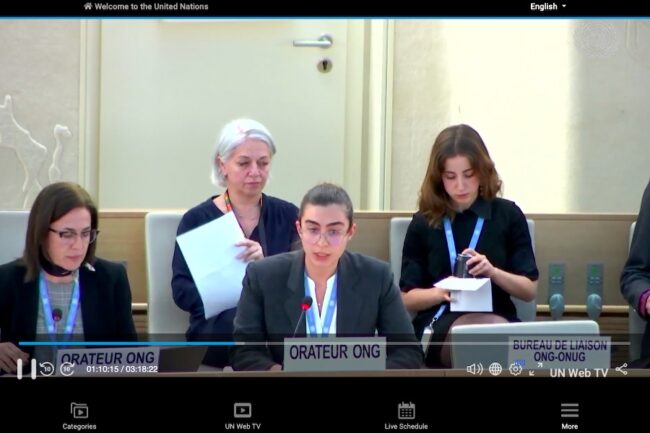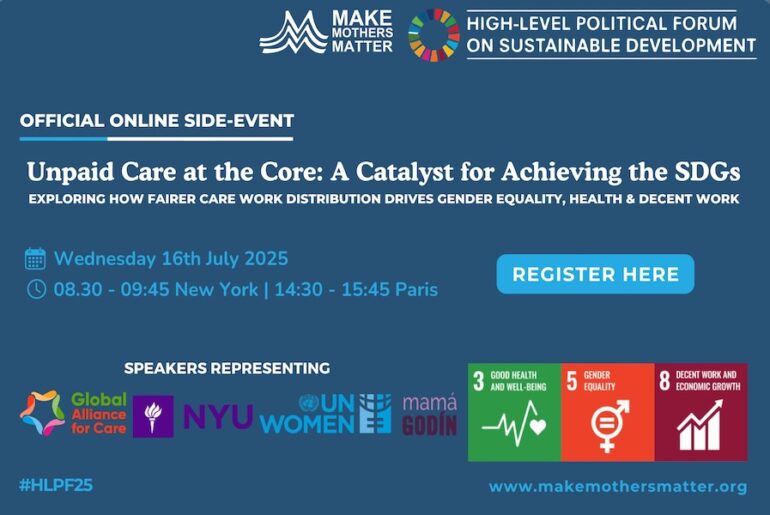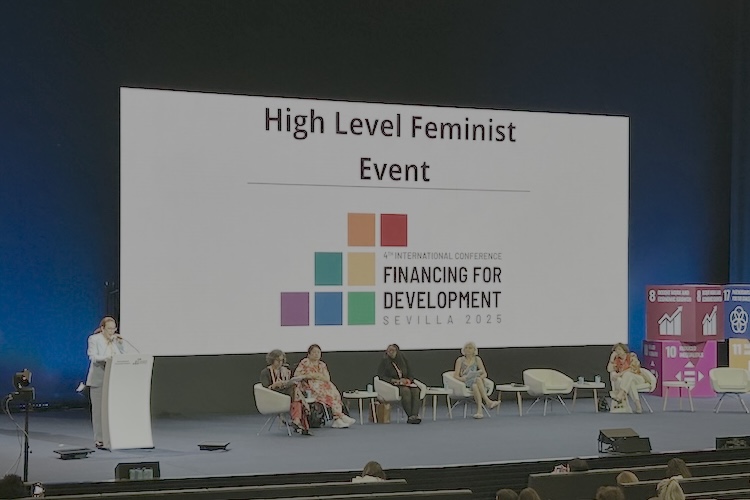MMM calls for the recognition of Care as a human right
19.03.23
UN Geneva, Human Rights Council - Framing Care as a Human Right at the UN level - right to care, right to be cared for, right to self-care - would unequivocally put obligations on all governments to provide adequate support to every unpaid caregiver, mothers in particular – thereby also protecting the right of any person in need to receive Care. Our call was made during a General Debate on item 3 at the Human Rights Council.

The following is the full text of our oral statement.
In recent years, the issue of the inequitable distribution of unpaid family care work has been receiving the attention it deserves, something we at MMM have long been advocating for. It is a cause of much discrimination and economic injustice for women – in particular when they are mothers.
In line with target 5.4 of the SDGs, more efforts should be made to recognize, value and redistribute unpaid domestic and care work. Redistribution is about sharing this work more equitably first between men and women, but also across society, to enable women to engage in paid work, be independent and make life choices.
But to recognize and value unpaid care work properly, we must recognize Care as a human right: the right to care, the right to be cared for, and the right to self-care.
The right to be cared for is already implicitly enshrined in the Convention on the Rights of the Child. It is the responsibility of States to support parents in their caring and educational responsibilities, and to provide childcare as part of public services. A right to Care would unequivocally put obligations on States to provide adequate support to every unpaid caregiver – thereby also protecting the right of any person in need to receive Care.
We therefore call on the Human Rights Council to consider the recognition of Care as a right – a new human right that could help alleviate the inequities and injustices suffered by unpaid caregivers, in particular mothers.
Justine Besson delivered this statement on behalf of MMM during the General Debate on the promotion and protection of all human rights (Item 3) of the 52nd Session of the Human Rights Council, which took place on 17 March 2023.
Envisioning care as a common thread to global crises
29.07.24
UN New York - Our virtual HLPF side-event brought together experts to shed light on how the various global crises we face (in particular climate change and other environmental crises,
We call for multi-stakeholder approach to recognise and support unpaid care work
21.07.24
UN New York - Participating in the meeting of the UN Economic and Social Council (ECOSOC) on care and support systems, MMM reaffirmed the principle of co-responsibility, which should underpin
The New EU Gender Equality Roadmap : A Call for Inclusion of Mothers
04.03.25
The European Commission’s initiative on a new Gender Equality Roadmap post-2025, marks a significant step forward in addressing gender disparities across the European Union. Make Mothers Matter (MMM








